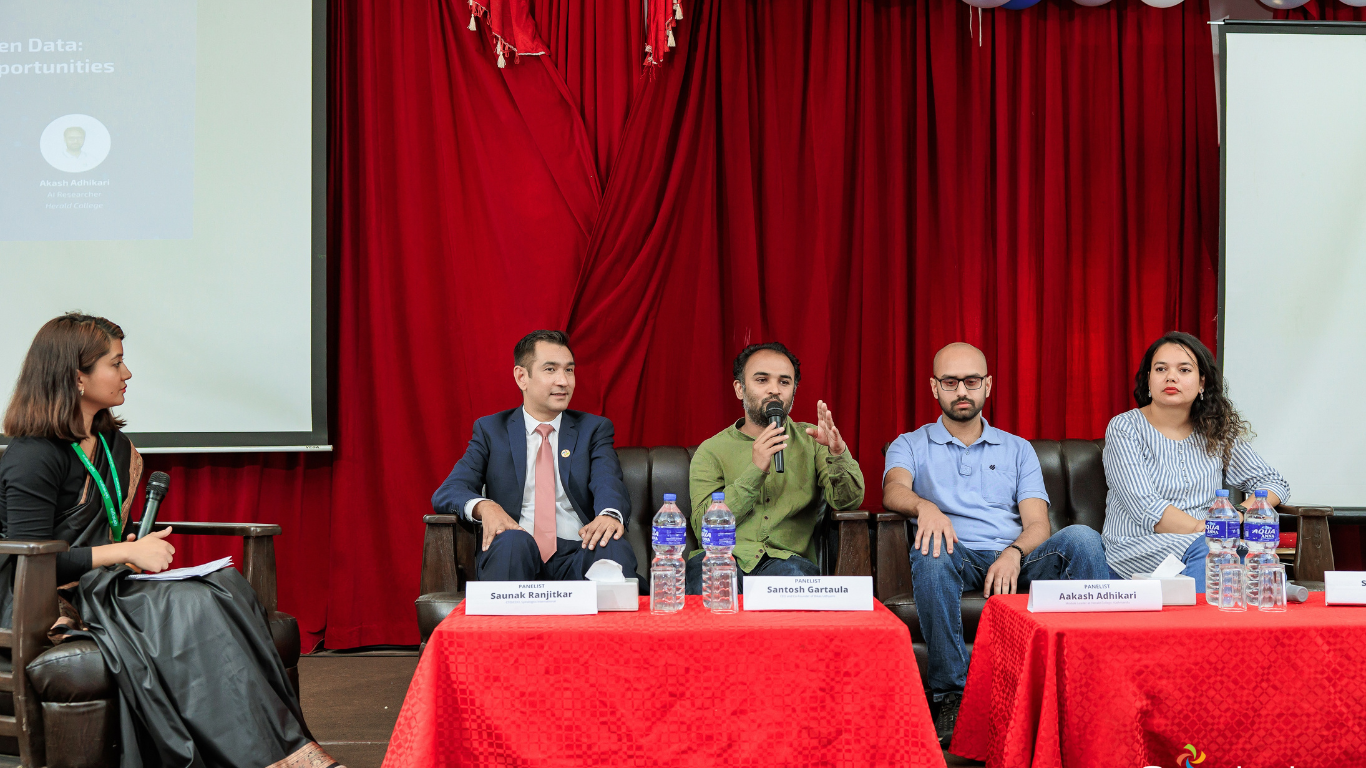
As a member of Spiralogics, I had a chance to participate in the company's annual hackathon, Spirathon, and a thought-provoking panel discussion on open data in Nepal presented itself. This event offered valuable perspectives on the potential of open data and its capacity to spur innovation, transparency, and empowerment within the country.
The panel discussion on Unlocking the Potential: Public Data Innovation and the Challenges Ahead in Nepal featured an esteemed panel comprising Saunak Ranjitkar, CTO/COO of Spiralogics International; Akash Adhikari, Artificial Intelligence Researcher; Santosh Gartaula, CEO and Co-Founder of Bikas Udhyami; and Sagun Khanal, Product Manager at CloudFactory Nepal. This diverse panel brought together perspectives from the realms of technology, entrepreneurship, research, and product development, fostering a comprehensive dialogue on the opportunities, challenges, and prospects of open data in the context of Nepal. The insightful discourse was moderated by Rasu Shrestha, Project Manager at Spiralogics International.
The Journey of Open Data in Nepal
During the panel discussion, Santosh Gartaula, shared insights into Nepal's open data journey. He mentioned that journey has been gradual, with the government gradually recognizing the importance of making public data accessible to citizens. Gartaula highlighted that establishment of Open Data Portal in 2017 marked a significant milestone in this journey. He explained that this portal provides a centralized platform for citizens and organizations to access and explore various government datasets, which was a crucial step towards promoting data accessibility and transparency in Nepal.
Opportunities: Fueling Growth and Empowerment
The open data movement in Nepal now presents a myriad of opportunities for individuals, communities, and organizations. Saunak Ranjitkar expressed his excitement about the potential of open data in his day-to-day work and life. "Open data allows us to make more informed decisions, identify trends, and develop innovative solutions to complex problems," he said.
Santosh Gartaula also emphasized the role of open data in promoting transparency and accountability. "By making data accessible to the public, citizens can analyze policies, monitor public spending, and hold authorities accountable for their actions," he said. His examples of open data applications benefiting Nepal's population, from education to essential services, inspired hope for positive change.
Sagun Khanal highlighted the potential of open data in empowering marginalized communities. Sagun Khanal emphasized that open data can be leveraged to create applications and services that address the varied needs of Nepal's population, ranging from delivering educational materials to facilitating access to essential services for rural communities.
Akash Adhikari sees open data as a catalyst for developing AI-powered solutions that can analyze vast datasets and provide valuable insights for Nepal. However, we must ensure these AI systems align with open data principles like transparency, accountability, and responsible data usage.
